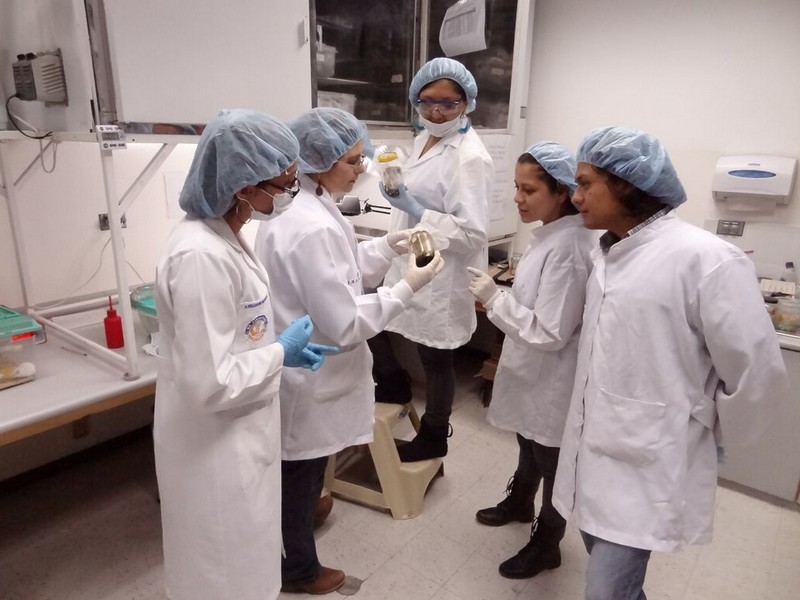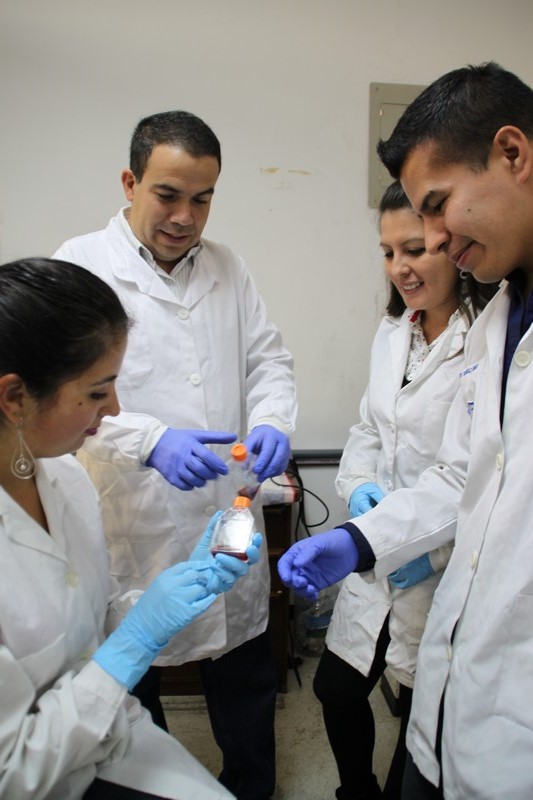At CISeAL, we believe scientific research plays a vital role in improving people’s health and living standards. This principle leads us to pursue scientific and technical excellence, and to encourage our young researchers to strive for a level of expertise and commitment to society that allows them to become leaders in their field. Thus, through scientific research, they will lead and assess public health policies implemented in the country and the region. For this purpose, we foster the development of collaborative spaces for scientific research.
CISeAL and Ohio University
 The summer program on Research on Tropical Diseases is the result of over 18 years of joint efforts from Ohio University’s Infectious and Tropical Disease Institute (ITDI) and Pontifical Catholic University of Ecuador (PUCE). Both institutions jointly operate CISeAL in Nayón campus.
The summer program on Research on Tropical Diseases is the result of over 18 years of joint efforts from Ohio University’s Infectious and Tropical Disease Institute (ITDI) and Pontifical Catholic University of Ecuador (PUCE). Both institutions jointly operate CISeAL in Nayón campus.Following their research principles, ITDI and CISeAL aim at reaching impoverished populations at risk of contracting Chagas and other health conditions pertaining to their context, through first-class technology and training. Since 2000, our group of biologists, entomologists, and experts in public health and development has conducted research on Chagas disease transmission cycle in almost every province in Ecuador.
From 2009, we broadened our scope to include not only other health conditions, but also new research perspectives and disciplines that would help us understand the context of the populations we intend to aid. The new version of our summer research program constituted another step towards bridging the theory-practice gap by using CISeAL’s new facilities to improve the training of both students and professors. To this effect, we included a workshop on interdisciplinary research, field work in communities exposed to Chagas disease in Loja, community work and clinical services in Manabí, and lab work with CISeAL’s main researchers.
Community Engagement Activities
 As part of CISeAL’s research activities, the Healthy Living Initiative was created in 2009 with a 10-year perspective to promote the socioeconomic development of communities in provinces of Loja and Manabí.
As part of CISeAL’s research activities, the Healthy Living Initiative was created in 2009 with a 10-year perspective to promote the socioeconomic development of communities in provinces of Loja and Manabí.In 2010, the first interdisciplinary project came together under the name of “Service Learning Program for the control and prevention of infectious diseases, social development, and health assessment in communities of Loja province.” This program aimed at fostering the growth of local communities through the creation of a sustainable environment that allowed for the prevention of Chagas disease, and the assessment of nutrition and health issues experienced by people in the canton of Calvas.
The project, designed by CISeAL’s Research Coordination Team, enabled 25 PUCE students and professors from different fields (architecture, biological sciences, nursing, among others) to participate in community service activities in several towns from Loja province, so as to provide a holistic approach to the actions against Chagas disease and serious health conditions that impact these towns: malnutrition, cardiovascular conditions, and diabetes. Since then, hundreds of students from PUCE, Ohio University and other institutions have participated in our community outreach and engagement initiatives.



